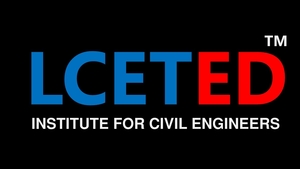HAZARD IDENTIFICATION RISK ASSESSMENT (HIRA)
What is meant by Hira?
HIRA-HAZARD IDENTIFICATION RISK ASSESSMENT
Risk assessment aims to ensure that the hazards
are eliminated, or risks minimised by the correct application standards.
• An assessment will be undertaken to evaluate the
potential health and safety risks to the client, the public and all persons
working on, delivering to or visiting the site. The measures necessary to
control these risks will be determined. Environmental health & safety and
environmental risks shall be identified during the project risk review
undertaken at the start of the project.
• Risk Assessments are to be undertaken by persons
competent in Project Management’s risk assessment methodology.
• The basic things which are generally considered while carrying out the HIRA are as follows:
- Introduction – A brief outline of the main activity
- Details of the Hazard and Risks involved
- Risk rating w.r.t Severity and probability
- A step-by-step description of how the main activity is
to be undertaken detailing
- What needs to be done?
- The order in which the task will be carried out
- What plant or equipment is required?
- Who will the task be done by?
- Who will supervise the task?
- Where will the task take place?
- When will the task take place?
- The control measures which must be taken before the
task is undertaken.
- Final risk rating status
- What to do if things go wrong etc.
• The assessment will include the following:
- The identification of hazardous substances or
processes at the project site
- Purchased goods and services, plant and equipment
(supply, inspection, maintenance, commissioning, isolation)
- The nature of the hazard with regard to health and
safety
- Practical means to control the hazards
- Whether medical advice is necessary
- Requirements of Legislation, Applicable Standards
& Codes of Practice
• Hazards shall be assessed having regard to:
- The likelihood and consequence of injury, illness or
incident occurring
- Available information on the hazard including any
records of incidents, illness and disease
- The potential for emergency situations
• Control measures shall be determined in accordance
with the “hierarchy of controls”.
- Elimination,
can the risk or hazard be totally eliminated?
- Substitution,
can the risk or hazard be replaced with a less hazardous method, material or
system?
- Isolation,
can the hazard or risk be distanced from persons or can it be enclosed to
prevent entry/access?
- Engineering Controls,
can the hazard or risk be guarded or made safe by engineering methods?
- Administrative Controls,
can training, increased supervision, rotation or signage assist?
- Personal Protective Equipment,
can PPE protect the worker from hazard or risk?
• The control measure chosen shall be the highest
possible viable control measure under the “hierarchy of controls” for that
hazard.
• A Risk Management Plan including Environment health
& safety and environmental risks, shall be developed by the Project Manager
and issued to the client for review.
• A copy of the pertinent sections of the Risk
Management Plan shall be issued to the principal contractor.
Risk matrix - Hira
Risk assessment flow chart - Hira










No comments:
Post a Comment